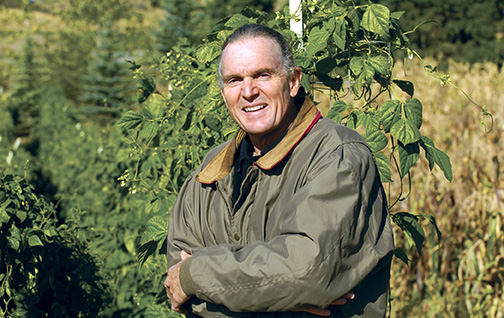Dr. John Reganold
Organic agriculture has a history of being contentious and is considered by some as an inefficient approach to food production. Yet organic foods and beverages are a rapidly growing market segment in the global food industry. The performance of organic farming will be discussed in light of four key sustainability metrics: productivity, environmental impact, economic viability and social wellbeing. Organic farming systems produce lower yields compared with conventional agriculture. However, they are more profitable and environmentally friendly, and deliver equally or more nutritious foods that contain less (or no) pesticide residues, compared with conventional farming. Moreover, initial evidence indicates that organic agricultural systems deliver greater ecosystem services and social benefits. Although organic agriculture has an untapped role to play when it comes to the establishment of sustainable farming systems, no single approach will safely feed the planet. Rather, a blend of organic and other innovative farming systems is needed.
Dr. John Reganold has shaped his career by his interest in agriculture and the environment, receiving his M.S. in Soil Science from UC Berkeley and his Ph.D. in Soil Science from UC Davis. He joined Washington State University in 1983 and is currently Regents Professor of Soil Science and Agroecology. He has spent 30-plus years bringing a blend of innovative research and teaching on sustainable farming systems into the mainstream of higher education and food production.
Dr. Reganold has 176 publications in scientific journals, magazines, and proceedings, including Science, Nature, and Scientific American. His research has measured the effects of organic, integrated, and conventional farming systems on productivity, financial performance, and environmental quality on four continents. He has taught more than 3,500 undergraduate students in soil science courses and received his university’s highest honors and national teaching and research awards. His former students are on the front lines of sustainability around the world, bringing food security to sub-Saharan Africa for the U.S. Agency for International Development, adapting quinoa to the salty soils of Utah, working on agroecology for Pacific Foods in Oregon, and turning wastes into resources in Haiti.
This talk is part of the Diversified Farming Systems Roundtable.


